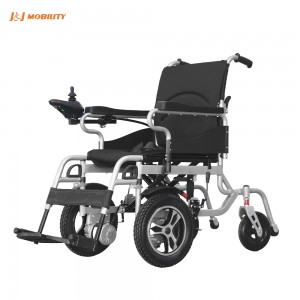Are Electric Wheelchairs Still Relevant in Today’s World?
The introduction of electric wheelchairs has revolutionized mobility for those with physical limitations, granting newfound independence and freedom. However, as technology and society continue to advance rapidly, it raises an important question: Are electric wheelchairs still relevant today? Let’s explore the factors that shape their ongoing significance.
The Evolution of Mobility Aids and the Impact of Electric Wheelchairs
Mobility assistance devices have a long history, evolving from simple canes and crutches to sophisticated electric wheelchairs. In recent decades, electric wheelchairs have marked a transformative leap for individuals with limited mobility. They use advanced components like rechargeable batteries, electric motors, and even smart technology features such as GPS tracking and obstacle detection.
Electric wheelchairs represent a crucial milestone in promoting accessibility and social inclusion. They empower users to take part in various activities—whether social, recreational, or professional—that they might otherwise miss out on. To understand their relevance today, we need to reflect on their historical significance, technological advancements, and the continuous needs they fulfill.
Technological Advancements: The New Age of Smart Electric Wheelchairs
One of the main reasons electric wheelchairs remain relevant is their continuous integration with modern technology. Today’s models are more than simple powered chairs; they are advanced mobility solutions featuring cutting-edge engineering. For instance:
Efficient Batteries: Lithium-ion batteries offer longer life spans and quicker charging, minimizing downtime.
Powerful Motors: Brushless DC motors are quieter and more energy-efficient, enhancing the overall user experience.
Advanced Controllers: These allow for precision maneuvering, and some even come equipped with voice-activated commands for users with limited dexterity.
The inclusion of smart technology elevates electric wheelchairs to a whole new level. Internet connectivity enables remote monitoring, diagnostics, and firmware updates, ensuring optimal performance. Additionally, Bluetooth and Wi-Fi capabilities allow for app-based controls, offering greater customization and convenience. High-end models even use artificial intelligence to navigate obstacles safely, boosting user confidence and security.
These advancements highlight that electric wheelchairs are not stagnant solutions but rather continuously evolving devices that adapt to meet users’ needs.
Challenges and the Path Forward
Despite their numerous benefits, electric wheelchairs face challenges that may impact their future relevance.
1. Affordability and Accessibility
The high cost of electric wheelchairs remains a significant barrier for many people, especially those without adequate insurance coverage. Maintenance and repair can also be costly and require specialized technicians, adding to the financial burden.
2. Environmental Concerns
While electric wheelchairs are more eco-friendly than gas-powered alternatives, the production and disposal of batteries pose environmental challenges. The extraction and use of rare earth elements in batteries raise concerns about long-term sustainability and ethical practices.
3. Inadequate Infrastructure
Accessibility remains an issue in many areas. Public transportation systems, sidewalks, and buildings often lack the modifications needed for electric wheelchairs, limiting their practical use. This lack of infrastructure poses a daily challenge for users and undermines the full potential of these devices.
The Future of Electric Wheelchairs: Innovation and Collaboration
The future relevance of electric wheelchairs hinges on overcoming these challenges. Innovations in battery technology, like solid-state batteries, could make devices more affordable and environmentally sustainable. Additionally, collaboration between governments, private companies, and non-profits is critical to improve accessibility infrastructure.
Efforts to recycle materials and research alternative resources can further mitigate environmental impacts. By fostering these innovations and partnerships, society can ensure that electric wheelchairs remain valuable and essential tools for mobility and independence.
Conclusion
At J&J Mobility, we believe that electric wheelchairs are still vital in empowering individuals with limited mobility. However, their continued relevance depends on addressing economic, environmental, and infrastructure challenges. By embracing technological advancements and promoting cross-sector collaboration, we can uphold the importance of electric wheelchairs in creating an inclusive and accessible world.
Post time: Nov-18-2024


